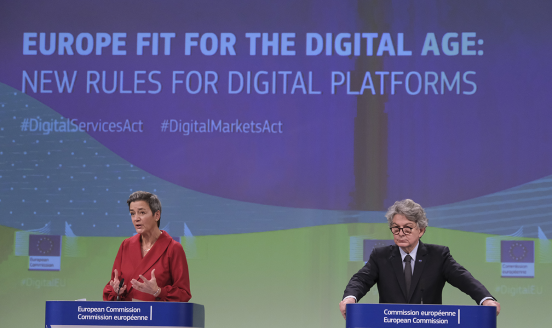Antitrust damages: the European Commission’s proposal
The European Commission has just adopted its proposed directive that would harmonise within the EU rules related to antitrust damages. The i
The European Commission has just adopted its proposed directive that would harmonise within the EU rules related to antitrust damages. The initiative aims to enable victims of antitrust abuses to obtain compensation in a consistent and effective manner. To give a simple example of what that could mean in practice: in a recent policy brief, Bruegel estimated that cartels uncovered by the European Commission between 2000 and 2012 shifted up to €48 billion from customers of cartelised products to sellers. Once enforced, the antitrust damages directive should in principle allow a significant chunk of that value to be claimed back by customers, regardless of where those customers are based in Europe. Decisions of the European Commission and of national competition authorities could then be used as direct evidence in national civil courts that the infringement occurred.
Currently, only 16 countries allow victims to sue for antitrust damages. And because of legislative fragmentation within the single market, large-scale lawsuits are rare. Differences in the way rights to damages are guaranteed in the member states distort the incentives to comply with EU competition law and imply differences in the level of deterrence within the single market. Recent studies suggest that when actions for damages in courts are a credible threat, they help to reduce the incentives that companies might have to breach antitrust laws. Moreover, the lack of a consistent EU framework creates uncertainty and therefore makes it difficult for companies, particularly those that operate in multiple countries, to predict the risk they face if they breach antitrust law. Harmonisation is therefore good news.
The key issues of substance in the draft directive concern information disclosure and damage quantification. On the first issue, the Commission’s proposal attempts to strike a balance between the right of claimants to obtain all the necessary information to support their claim in Court, and the need to preserve the incentives for companies to reveal information about ongoing conspiracies. The proposal suggests that specific types of information provided by infringing companies should not be disclosed to claimants (namely: corporate statements by whistle-blowers and submissions aimed at settling cases amicably). Whistle-blowing companies should also be liable only for the damage they directly caused, that is they would not pay for the indirect damage caused by the establishment of a cartel, such as an overall increase in market prices by all market players. Quantification of damages is a tricky issue. It requires estimating the ‘counter-factual’ scenario, ie how the market would have performed had the infringement not been committed. This estimation will depend heavily on the starting assumptions and on the level of detail and accuracy of the available data.
The European Commission appears less bold on the more general issue of collective redress. On that subject, the proposal contains only guidelines that member states will be free to ignore. It is therefore doubtful if the guidelines will have any effect at all, given the strong domestic resistance from industry that EU governments face. US-style class-actions may cause an excessive and unjustified burden on companies, but the Commission’s proposal establishes a number of safeguards to limit the risk of litigation abuse. For example, it suggests that only state-appointed non-profit entities can act on behalf of claimants. Moreover, in the Commission’s framework, affected consumers would not join the action by default (as happens in the US). The so-called ‘opt-in’ option requires consumers to take the initiative to join the claimants’ group in order to be entitled to compensation. If these safeguards are considered sufficiently effective in preventing abuse or excessive burden for companies, it is therefore difficult to understand why these rules should just come in the form of guidelines and not be uniformly enforced throughout the single market.
The EC’s proposal will be presented and discussed at Bruegel on June, 20.



